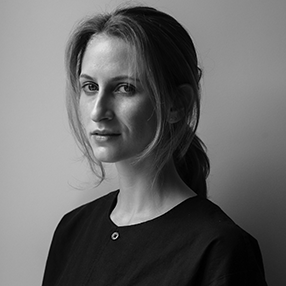I Looked on My Right Hand and Beheld
a hand made out of all that it touched—
fingers of syringes packed with soiled
polyester blankets nails cut from
a plastic bottle cap knuckles
shaped by rinds of other knuckles
and details layered in delicate ash—
ruddy, colorful, clothed. But the left,
flesh and grey, poured like the concrete
surrounding it and sanded at the edges
careful as geometry allows with
dried skin creeping through contours.
Naked hands. Beating knuckles on the ground
wondering will it crack the concrete finally
will it crumble under opposing forces—
material, economy as simple as concrete
is simple, simple to explain but difficult
to understand without explanation.
As plates in our deep crust skid past
one another. One might wonder who
thinks to pour a building of mostly
liquid. Such is the logic of conviction
we are told before the terms are defined.
Dysfunction of episodic memory.
Episode of memory of dysfunction.
Hands that are not our hands.
And so convinced are we of
our own demise we devise it.
Copyright © 2020 by Zoë Hitzig. Originally published in Poem-a-Day on May 1, 2020 by the Academy of American Poets.
“I lifted the title of the poem out of Psalm 142:4, which begins, ‘I looked on my right hand, and beheld, but there was no man that would know me: refuge failed me; no man cared for my soul.’ The psalm is spoken by David, exiled in the cave of Adullam, and refers to ancient Jewish court proceedings in which the advocate would stand on the right hand side of the accused. So the poem begins in a state of profound isolation and confusion; the speaker is on shaky ground—she can’t quite distinguish between memory, imagination and reality. Nor can she reconcile the conflicting impulses within her. In her disoriented state, she struggles—especially at the end of the poem—to figure out how she fits into the social structure that surrounds her.”
—Zoë Hitzig

